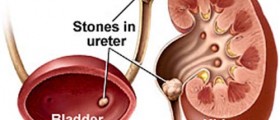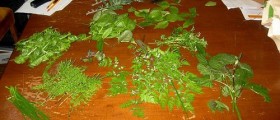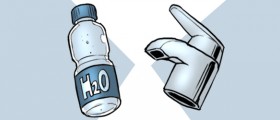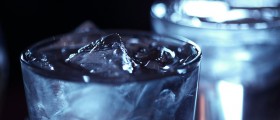Common Illness and a Great Misconception
Kidney stone is a condition bothering many. Namely, due to the fact that our water is of ever-lower quality as well as our nutrition and lifestyles, the frequency of this condition is not unexplainable. Kidney stones are formed by piling up the minerals inside our kidneys. If untreated or left alone for too long, these tiny piles will transform into small stones, growing larger as long as there are minerals in our kidneys.
Large enough, these stones present a serious problem for one's health, being extremely painful and uncomfortable. Most of the time, they might be expelled through urination. However, sometimes, surgical intervention is a must. Hormonal imbalances, too much calcium in one's system, and many other causes may stand behind kidney stones as well.

Prevention involves drinking sufficient amounts of water. Dehydration, a common cause of kidney stones, causes long pauses between urination. Thus, it gives way to kidney stone formation. Therefore, drinking water frequently is crucial. However, some people claim that one should be careful and avoid drinking mineral water since it may only make things worse. This is not the case. On the contrary, mineral water has been proven to be even better than the regular one, concerning its effect on kidney stones.
Mineral Water Against Kidney Stones
Some people believe that mineral water, containing calcium among other minerals, may be harmful to our kidneys, providing the stones inside of them with more materials for their growth. This, however, is not the case. Mineral water has only small amounts of calcium, therefore making it unable to be the culprit of this condition. Rather, magnesium and calcium found in mineral waters are considered to be the best tools against kidney stones.
- A French mineral water, containing calcium and magnesium (202 and 36 ppm, respectively) was selected as the dietary vehicle. Twenty calcium oxalate stone-forming patients of each sex as well as 20 healthy volunteers of each sex participated in the study.
- Each subject provided a 24-hour urine collection after ingestion of mineral water over a period of 3 days; after a suitable rest period the protocol was repeated using local tap water (Ca: 13 ppm, Mg: 1 ppm).
- In addition, 24-hour urines were collected by each subject on their free diets. The entire cycle was repeated at least twice by each subject.
- Several risk factors (excretion of oxalate; relative supersaturations of calcium oxalate, brushite and uric acid; calcium oxalate metastable limit; oxalate:magnesium ratio and oxalate:metastable limit ratio) were favourably altered by the mineral water and tap water regimens but the former was more effective. In addition, the mineral water protocol produced favourable but unique changes in the excretion of citrate and magnesium as well as in the relative supersaturation of brushite which were not achieved by the tap water regimen.
- To the contrary, tap water produced an unfavourable change in the magnesium excretion.
- The group which benefitted most were male stone formers in whom 9 risk factors were favourably altered by the mineral water protocol.
During some conducted researches people were given regular tap water and mineral water for frequent use. After a certain period of time, their urine was examined. Remarkably, those who were drinking mineral water rich in calcium and magnesium managed to have healthier results and smaller chances of developing kidney stones than the ones who drank tap water during this test period.
Therefore, magnesium and calcium-rich water are considered recommended means of prevention as far as kidney stone formation is concerned. Thus, one may only benefit from drinking this kind of water.
Taking into consideration that our once clean tap water is gradually getting worse every year, it is better to be safe with mineral water than to risk your health with other types of this life-giving liquid.
Finally, if you know that mineral water replenishes your supply of these vital nutrients, while at the same time, protecting you from kidney stones, switching to it permanently will not be such a hard task.

















Your thoughts on this
Loading...